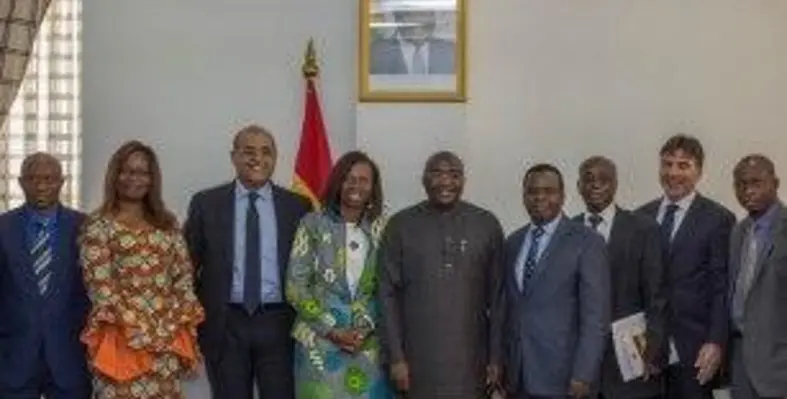The African Development Bank’s (AfDB) support for Ghana has boosted its government’s efforts to consolidate the economy, according to the country’s vice-president Mahamudu Bawumia
Bawumia, welcoming a team of executive directors and senior officials of the Bank on an official visit, cited various Bank-supported projects, especially in the areas of infrastructure, agriculture and technical innovation, as examples of interventions that have helped to boost the government’s efforts to consolidate the economy.
“Those are areas very critical for us and we are happy to have the African Development Bank helping us. You have been in the trenches with us and things are now going well,” Bawumia said.
The Bank delegation, led by Bright Okogu, executive director for Nigeria and Sao Tome & Principe, will meet local authorities, the private sector, civil society and other development collaborators.
Bawumia said that Ghana’s economy has begun to show great potential following three years of bold fiscal policy reforms, which included the adoption of a law capping fiscal deficit at five per cent of the gross domestic product as part of measures to enhance debt sustainability and win investor confidence.
Ghana is looking to the Bank for investment in integrated aluminium industry, using the country’s large bauxite deposit as raw materials. The Bank should consider supporting Ghana to tackle climate change in line with the Group’s crosscutting interventions, the vice-president said.
The executive directors commended the country for its newly constructed Terminal 3 facility at the Kotoka International Airport, which was partly financed by the Bank.
Later Monday, the Bank delegation met with Bank of Ghana Governor Ernest Addison, who briefed them on the country’s assessment of the likely impact of the coronavirus on Ghana’s economy.
The Bank’s current portfolio in Ghana is channelled through various projects aimed at job creation, economic inclusiveness, macroeconomic stability and industrialisation.
Major financing for development to the country includes mobilizing a seven-year US$600mn syndicated receivables-backed loan for Ghana Cocoa Board to improve productivity and domestic value addition; approval of the first phase of the eastern corridor road project estimated at US$102mn and an urban transport project entailing the construction of a three-tier interchange.












